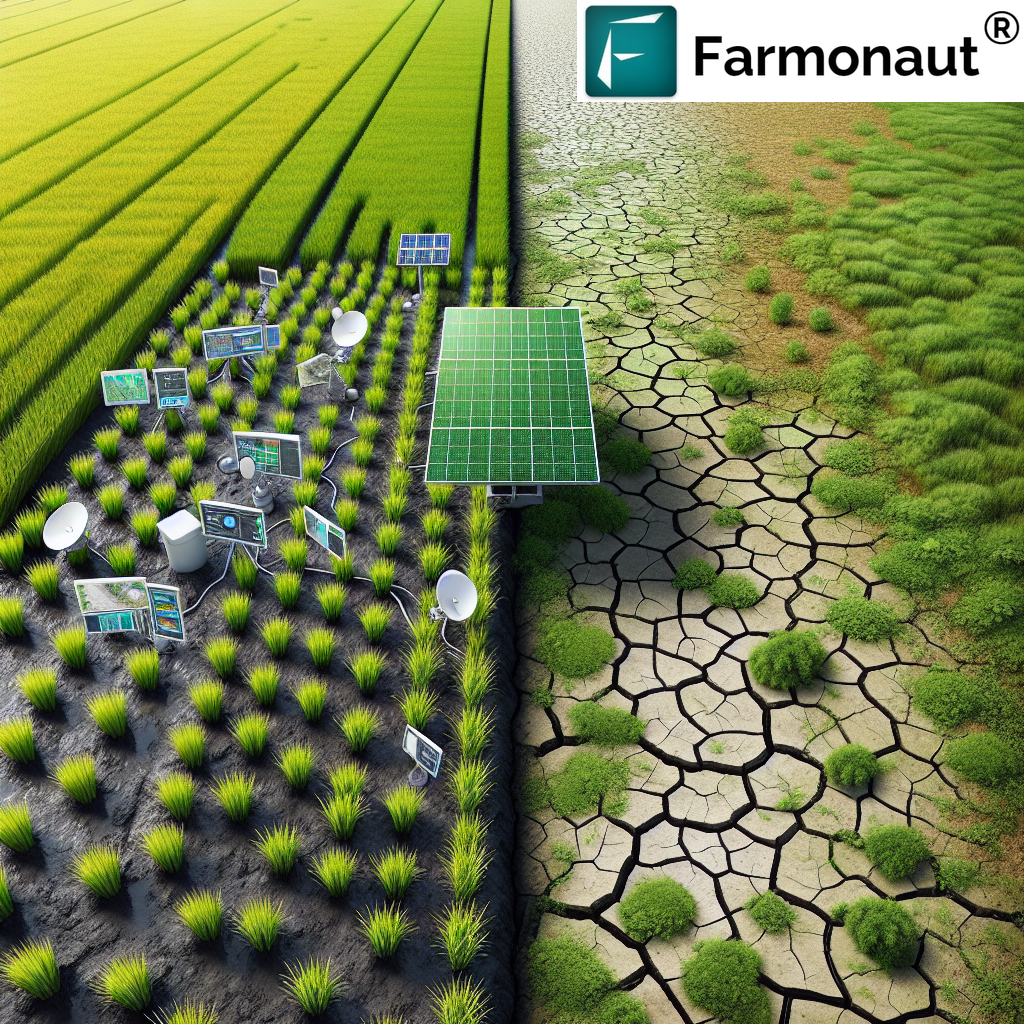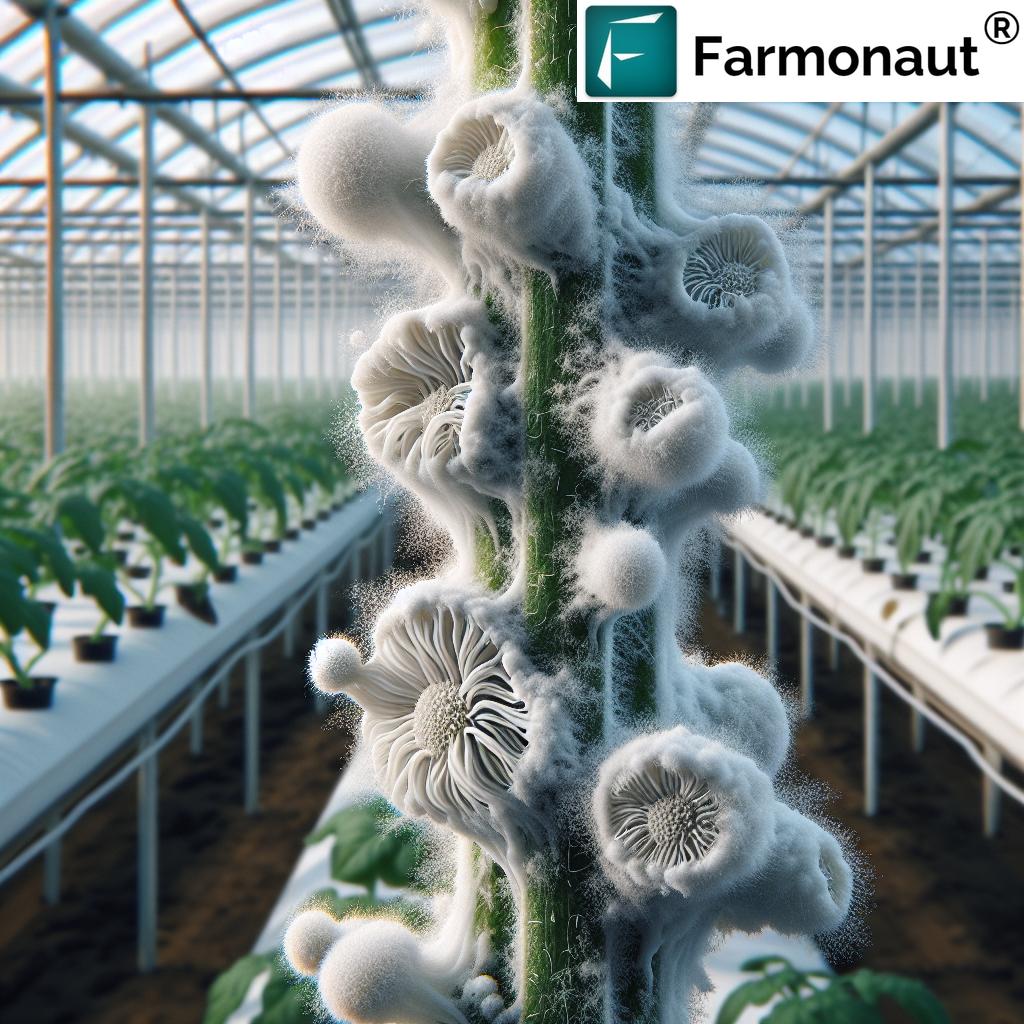Agricultural Engineering Companies: 7 Genetic Engineering Advantages for 2025’s Sustainable Yields
“Genetically engineered crops can increase yields by up to 22%, transforming how agricultural engineering companies approach food production.”
Summary: The Role of Agricultural Engineering Companies and the Advantages of Genetic Engineering in Agriculture in 2025
In 2025, agricultural engineering companies stand at the forefront of technological innovation, integrating new genetic engineering advancements to propel efficiency, sustainability, and productivity in global agriculture. With the world’s population continuing to grow, and resource limitations tightening, these companies are not just machinery providers—they now specialize in precision farming tools, real-time data analysis, AI/advisory platforms, and digital solutions that fundamentally reshape how we produce food.
The synergy between genetic engineering in agriculture and engineering firms is pivotal: genetic modifications give us crops that are more resilient, nutrient-rich, and resource-efficient, while engineering innovations ensure these varieties reach their fullest potential through optimized farm management, irrigation, distribution, and environmental monitoring.
Key Themes:
- Advantages of Genetic Engineering in Agriculture: Higher yields, reduced chemical inputs, improved nutrition, and climate resilience.
- Role of Agricultural Engineering Companies: Digitizing & modernizing every aspect of farm operations for 2025 and beyond.
- Sustainable Food Security: Integrated solutions address climate, population, and environmental challenges, advancing stewardship and productivity.
Background: Our Rapidly Evolving Agricultural Landscape
Agriculture is undergoing one of its most transformative eras. By 2025, climate change, resource limitations, a booming population, and global food security concerns require new approaches. Challenges like unpredictable weather, shrinking arable land, and increasing environmental degradation are pushing both agricultural engineering firms and biotechnology leaders to the limits of innovation.
This has led to the rise of agricultural engineering companies leveraging AI, IoT sensors, drones, automation, and, crucially, the integration of genetic engineering in agriculture to address these multidimensional pressures. The intersection of advanced engineering, digital tools, and biotechnology is now shaping the future of sustainable farming for both smallholder farmers and large agribusinesses alike.
Why This Matters in 2025:
- More mouths to feed: The world population is projected to exceed 8.1 billion, stressing the need for more efficient agricultural practices.
- Environmental limits: Scarcity of water, depleted soils, and environmental regulations challenge traditional output models.
- Pivotal innovation: Only through engineering advancements and adoption of genetically engineered crops can food security and sustainability keep pace with demand and climate shifts.
Agricultural Engineering Companies: Modern Innovators at the Forefront
Agricultural engineering companies, also known as agricultural engineering firms, consistently stand at the forefront of integrating innovative technologies in agriculture. Historically focused on mechanization, machinery development, soil management, and irrigation systems, their role has expanded. Today, these companies design and implement smart technologies tailored for 2025’s demands:
- Precision Agriculture Tools: Connected machinery automates seeding, fertilization, and pesticide delivery with meter-level accuracy, minimizing inputs and maximizing yields.
- IoT & Sensors: Real-time soil, weather, and crop data collection enables rapid response and more efficient resource allocation.
- AI-Driven Monitoring Systems: Algorithms analyze farm data, optimizing crop management and predicting disease, drought, or nutrient issues before they spread.
- Drone Technology: Aerial surveys provide high-resolution insights into crop health, irrigation patterns, and yield estimates.
- Digital Farm Management Platforms: Cloud-based dashboards allow farmers and agribusinesses to monitor and optimize operations from anywhere, on any device.
Operational Impact on Global Farming:
- Minimized resource use through targeted application of water, fertilizers, and pesticides.
- Reduction of labor dependency thanks to automation—vital as rural labor shrinks worldwide.
- Consistent, higher productivity through literal ‘precision’ in each agricultural operation.
By supporting the cultivation of genetically engineered crops and precision agriculture technologies, agricultural engineering companies deliver the full potential of biotechnology breakthroughs to the world’s farmers.
Looking to optimize your farm’s resources in real time and ensure sustainability? Our Carbon Footprinting tools provide actionable, satellite-driven insights for agricultural and environmental stewardship—helping you measure, reduce, and track farm emissions across all operations.
Genetic Engineering in Agriculture: Game-Changing Innovations
Genetic engineering in agriculture refers to the direct manipulation of a crop’s DNA using biotechnology to introduce desirable traits—such as disease resistance, drought tolerance, enhanced nutrition, or faster growth rates.
By 2025, genetically engineered crops (also known as GMOs or GE crops) are not only widely accepted but are increasingly cultivated globally. They address critical needs by improving yield, efficiency, safety, and environmental performance, making them a cornerstone of the future of farming.
Key Areas of Genetic Advancements
- Drought Tolerance: Crops that withstand prolonged periods of low water availability.
- Pest/Pathogen Resistance: Varieties modified to fight off specific pests and diseases without chemical intervention.
- Nutritional Biofortification: Examples include Vitamin A-enriched rice and iron-rich beans—tackling global malnutrition.
- Enhanced Photosynthesis & Growth Rates: Crops that convert sunlight more effectively and reach maturity faster for double or triple-cropping opportunities.
- Salinity and Soil Tolerance: New genetics for coastal/ saline/ degraded soils, broadening available arable land.
Genetic engineering is now carefully regulated, with safety, compliance, and long-term impact being paramount for commercial deployment.
The 7 Core Advantages of Genetic Engineering in Agriculture
- Increased Crop Yield
- Disease Resistance
- Drought Tolerance
- Reduced Pesticide Use
- Enhanced Nutritional Value
- Faster Growth Cycles
- Sustainability Impact
“By 2025, global demand for genetically engineered seeds is projected to reach over $40 billion, fueling agricultural innovation worldwide.”
Comparison Table of Genetic Engineering Advantages Enabled by Agricultural Engineering Companies
| Advantage | Brief Description | Estimated Impact Percentage | Example Technology or Crop |
|---|---|---|---|
| Increased Crop Yield | Genetic modifications improve plants’ ability to withstand biotic/abiotic stress, resulting in consistently higher yields. | +15–22% | Bt cotton, yield-optimized soybeans |
| Disease Resistance | Genetic traits introduced to resist specific diseases and reduce crop losses from pathogens. | +10–18% | Virus-resistant papaya, blight-resistant potatoes |
| Drought Tolerance | Genes inserted to increase crop resilience under water-limited conditions. | +12–16% yield in drought | DroughtGuard maize, water-sparing wheat |
| Reduced Pesticide Use | Engineered pest resistance dramatically lowers the need for insecticides. | -30–50% pesticide needed | Bt corn, pest-resistant brinjal |
| Enhanced Nutritional Value | Biofortification for key nutrients helps address malnutrition and health. | +20–40% nutrient increase | Golden Rice (Vitamin A), Iron-enriched beans |
| Faster Growth Cycles | Crops are bred to reach maturity and harvest stages more quickly, enabling more frequent crop rotation each year. | +10–20% faster maturity | Short-duration rice, rapid-maturing maize |
| Sustainability Impact | Lower inputs and higher resource efficiency reduce agriculture’s environmental footprint. | -25% greenhouse emissions possible | Climate-smart hybrids, nitrogen-efficient rice |
Exploring the 7 Advantages of Genetic Engineering in Agriculture
1. Increased Crop Yield
Perhaps the most direct advantage of genetic engineering in agriculture is the substantial increase in crop yield. By integrating genes that enhance photosynthesis, resource use, or stress tolerance, crops such as maize, rice, and wheat exhibit yield improvements of over 15%, even under adverse environmental conditions.
This is crucial for regions facing repeated climate shocks as well as for supporting food security initiatives in developing economies. Agricultural engineering companies further amplify these gains through digital management, optimized planting, and precision application of inputs.
2. Disease Resistance
Genetic modifications make crops more resilient to biotic stresses (viruses, bacteria, fungi). For example, virus-resistant papaya and blight-resistant potatoes exhibit 10–18% higher survival and output.
Modern engineering technologies from leading firms ensure these disease-resistant varieties are closely monitored and their performance measured, creating robust control systems that quickly isolate and address any unusual pathogen activity.
3. Drought Tolerance
With water scarcity a dominant issue in 2025, genetically engineered crops with drought tolerance genes help farmers produce consistent yields—even during prolonged dry spells or in degraded soils.
Combined with precision irrigation tools and soil moisture sensors designed by agricultural engineering companies, water use is optimized, enabling sustainable cultivation on otherwise marginal land.
4. Reduced Pesticide Use
Pest-resistant crops like Bt corn and modified brinjal have dramatically reduced the need for harmful pesticides, lowering input costs by up to 50%.
This not only promotes environmental stewardship but also protects farmers and end consumers from chemical exposure. When merged with digital pest-monitoring platforms, farms can nearly eliminate unnecessary chemical usage.
5. Enhanced Nutritional Value
Nutritionally enhanced crops—like Vitamin A-enriched rice or protein-boosted beans—target malnutrition, supporting health in food-insecure regions.
Genetic engineering, with digital traceability features (see our Traceability Solutions), assures the safety and integrity of these food products across global supply chains.
6. Faster Growth Cycles
Crops with accelerated maturation genes allow for more frequent rotation, increasing annual output and boosting farmers’ profits.
Through fleet and operations management tools (Farmonaut Fleet Management), farms can efficiently schedule planting, maintenance, and harvest cycles, aligning with these faster growth varieties for maximum return.
7. Sustainability Impact
Genetically engineered crops—alongside the digital agronomy and environment-monitoring solutions from engineering firms—deliver measurable sustainability value:
- Lower input use (water, chemicals, fertilizers), means fewer emissions and waste.
- Enhanced environmental health by reducing run-off and improving land restoration.
- Climate-smart hybrids combat greenhouse emissions and help maintain productivity in a changing global environment.
Our Crop Plantation & Forest Advisory Tools guide sustainable practices for plantations, forests, and agro-ecological planning—combining genetic advancements, climate data, and engineering insights.
Synergy: How Agricultural Engineering Companies Enable Genetic Engineering’s Success
The union of smart engineering and genetic innovation drives transformative impact. Here’s how leading agricultural engineering companies make the most of genetically engineered varieties:
- Precision Deployment: Smart machines position seeds for optimal density and access to water/nutrients, tailored to each variety’s genetic strengths.
- Sensor-Based Management: Soil, crop, and weather sensors provide real-time data, matching irrigation and input profiles to maximize genetically enhanced traits.
- Farm Management Platforms: Digital control panels (e.g., API access at Farmonaut API and developer docs at API Developer Docs) integrate genetic crop data, enabling large agribusinesses and smallholders to make data-driven decisions for every field.
- Traceability and Compliance: Blockchain-based solutions document every step—from seed to plate—assuring safety, efficiency, and global standards compliance.
By connecting biotechnology advancements to the digital transformation of farming, engineering companies unlock the full advantages of genetic engineering in agriculture.
Farmonaut: Satellite Data, AI, and Blockchain for Next-Gen Agriculture
At Farmonaut, we combine satellite imagery, artificial intelligence (AI), blockchain, and resource management tools to address challenges in agriculture, mining, and infrastructure. Our technologies support:
- Satellite-Based Crop Monitoring: Multispectral satellite images reveal crop health (NDVI, NDRE, SAVI), soil conditions, and water stress to maximize output and efficiency.
- Jeevn AI Advisory System: Delivers real-time weather forecasts and operational insights, aligned with genetic and engineering advances to boost yield and resource efficiency.
- Blockchain Traceability: Ensures the safety and integrity of genetically engineered food products for domestic and export markets.
- Fleet & Resource Management: Streamlines field operations, minimizes input wastage, and ensures sustainable practices (detailed at Large Scale Farm Management).
- Environmental Impact Tracking: Our carbon footprinting and impact assessment solutions help users comply with environmental regulations and promote climate resilience in agriculture.
Our platform is accessible via Android, iOS, web, and API, allowing farmers, businesses, and governments around the world to monitor crops, manage resources, and make data-driven decisions for sustainable food production.
Curious how our platform can power your next genetic crop project or environmental stewardship goals? Get started with Farmonaut today!
Looking for quick, satellite-based compliance checks for agricultural loans or crop insurance? Speed up your process and reduce fraud with Farmonaut’s Crop Loan and Insurance Verification—for reliable, satellite-validated reporting.
Challenges Facing Agricultural Engineering and Genetic Innovations
While the advantages of genetic engineering in agriculture and innovative technologies from leading engineering firms are clear, several multidimensional challenges remain:
- Regulatory Hurdles: Policies around the approval and integration of genetically engineered crops differ globally. Compliance, transparency, and long-term safety data are vital.
- Public and Market Acceptance: There remains public skepticism in some markets over the safety and environmental impact of certain genetic technologies.
- Economic Barriers: Initial adoption and infrastructure costs may be high for smallholder farmers unless accessible solutions—like Farmonaut’s modular, subscription-based offerings—are deployed.
- Biodiversity Concerns: Careful management is necessary to avoid unintended impacts on non-target species or wild plant populations.
- Technological Integration: Seamless integration between engineering innovations, genetic databases, farm management tools, and regulatory systems is complex but critical for 2025’s connected agriculture.
Shaping 2025’s Agricultural Future: Our Collective Responsibility
The intersection of agricultural engineering companies and genetic engineering in agriculture sets the stage for a resilient, productive, and sustainable farming paradigm. Yet, a holistic approach will be necessary—combining:
- Sound regulatory frameworks
- Engagement with farmers, consumers, and policymakers
- Sustainable business models and technology access
- Continuous innovation in both plant genetics and engineering solutions
With coordinated action, the advantages of genetic engineering can be scaled globally; agricultural engineering firms can bring their expertise to bear on modernizing food production, and together, these shifts can help us address the food, climate, and resource challenges of 2025—and beyond.
Join the next era of farming by leveraging integrated technologies and science-backed strategies for productivity, safety, and stewardship.
FAQ: Agricultural Engineering Companies and Genetic Engineering in 2025
Q1: What is the main role of agricultural engineering companies in 2025?
Agricultural engineering companies specialize in designing, developing, and deploying innovative technologies—such as precision agriculture tools, AI-driven management systems, and digital platforms—that optimize every aspect of farm operations. In 2025, they go beyond machinery, enabling the deployment and monitoring of new genetically engineered crop varieties for sustainability and high yields.
Q2: What are the core advantages of genetic engineering in agriculture?
The main advantages include increased crop yield, disease resistance, drought tolerance, reduced pesticide usage, enhanced nutritional value, faster growth cycles, and a significant sustainability impact through reduced resource consumption and lower environmental footprint.
Q3: How do agricultural engineering firms and genetic engineering work together?
Agricultural engineering firms create and deploy tools—like IoT sensors, AI analytics, and precision machinery—that maximize the performance of genetically engineered crops. Data-driven farm management ensures these crops reach their highest productive and environmental potential.
Q4: Are genetically engineered crops safe and accepted globally in 2025?
Yes, most genetically engineered crops are regulated for safety and widely cultivated in over 70 countries by 2025. However, local regulations and public perception may affect specific markets, requiring ongoing transparency and traceability solutions.
Q5: How does Farmonaut support modern agriculture?
We provide satellite-based crop monitoring, AI-powered advisory, blockchain traceability, and farm resource management tools, all designed to enhance productivity, sustainability, and transparency for farms of any size, anywhere in the world.
Farmonaut Subscription Plans
Our modular subscription plans make advanced satellite data, AI-advice, and resource management affordable and scalable for individuals, businesses, and governments worldwide.
Quick Links
- Farmonaut Web App – Start satellite-driven monitoring in seconds.
- Farmonaut API – Integrate weather, crop, and environmental data directly into your platform.
- Farmonaut API Developer Docs – Full documentation for custom development and integration.
- Carbon Footprinting for Farms – Measure and manage emissions for sustainable agri-practices.
- Large Scale Farm Management Tools – End-to-end resource management for agribusinesses.
- Crop Loan & Insurance – Satellite-based verification and fraud reduction.
- Blockchain Product Traceability – For compliance and export certification.
- Crop Plantation and Forest Advisory – Optimize for climate-smart plantation strategies.











